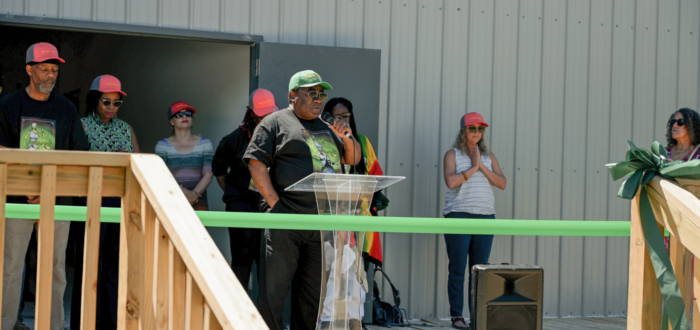
In the Black community, philanthropy extends beyond wealth; it’s a collective effort that involves everyone. Black families consistently give a larger percentage of their income to charity than any other group, often contributing time, money, and resources to support one another. This spirit of giving was particularly evident during the COVID-19 pandemic, when Black organizers led mutual aid initiatives to uplift their communities.
Time and time again, this same generous and responsive spirit motivates Black individuals across the country to contribute through giving circles, block clubs, church collections, sororities, and online GoFundMe drives. This culture of philanthropy not only strengthens Black communities but also inspires solidarity and action across diverse communities.
Climate change is another area where Black communities are leading the way. These communities have long felt the effects of climate change, from dangerous heat waves and flooding to superstorms. The impact is exacerbated by decades of redlining and public disinvestment that have left neighborhoods, schools, and businesses without the resources needed to survive the climate crisis, let alone thrive as we transition to a more sustainable economy. Black people are more likely to die from heat-related causes, and Black neighborhoods are significantly hotter than their white counterparts.

Despite these challenges, Black communities are at the forefront of creating solutions, from clean energy projects to food security initiatives. For example, in Highland Park, Michigan, Mama Shu and her community installed solar-powered street lights and built a school, embodying the resilience and creativity of Black philanthropy. Reverend Leo Woodberry, pastor of Kingdom Living Temple and Executive Director of New Alpha Community Development Corporation in Florence, South Carolina, launched a crusade to bring clean drinking water to his community by installing four solar hydropanels around his church. He believes that people are called to take care of the planet and each other.
Black women, in particular, have a long history of giving. From Mary Ellen Pleasant, who funded abolitionist efforts, to Madam C.J. Walker, who supported charities and education, Black women have been at the forefront of philanthropy. Today, celebrities like Beyoncé and Shonda Rhimes continue this legacy, but it’s the everyday Black women philanthropists who truly embody the essence of giving.
In these times, when our country feels divided, the need for compassion is greater than ever. Across the nation, people are resisting a culture of greed that prioritizes the individual over the collective. More of us are advocating for a society that values people and the planet over profit. Communities are practicing an authentic culture of care, focusing on where their food and clothing come from and how the people behind these goods are treated.
This Black Philanthropy Month, we encourage everyone to continue showing up for their communities. Whether by donating, volunteering, or simply staying informed, every act of giving makes a difference.
–
Black Philanthropy Month (BPM) is a global celebration and concerted campaign to elevate African-descent giving and funding equity. Incubated starting in 2001 by its Founder Dr. Jackie Bouvier Copeland, with the support of Reunity, formerly the Pan-African Women’s Philanthropy Network, BPM launched in 2011 with its first official global summit to commemorate the United Nations Year and Decade of People of African Descent.